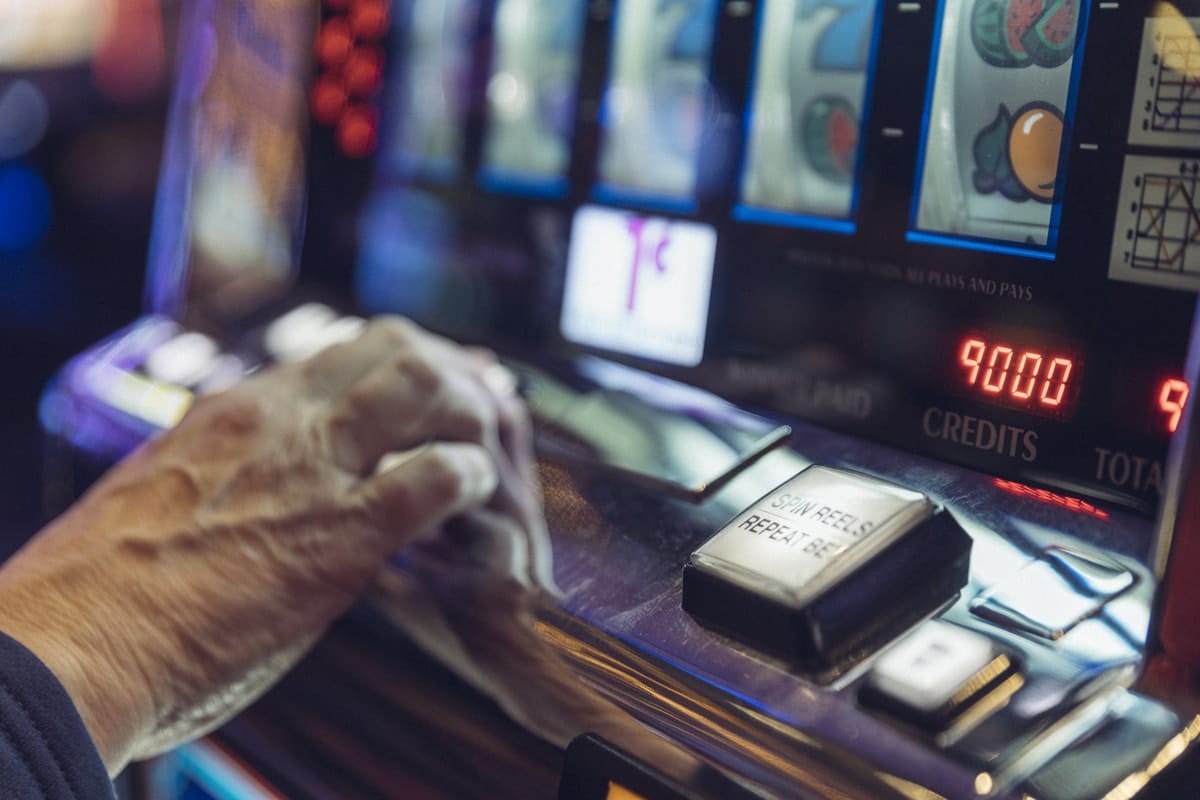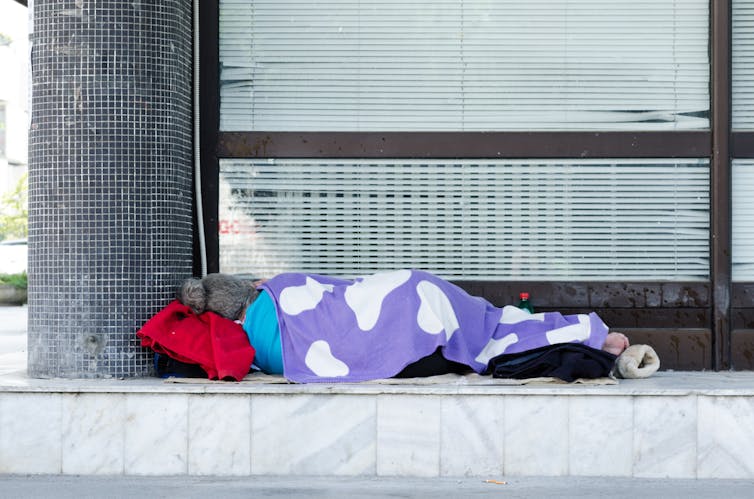
Gambling and homelessness are clearly linked. Australians over 50 are particularly vulnerable. They have high rates of regular gambling, and are the fastest-growing age group of Australians experiencing homelessness.
Data from homelessness services across Australia reveals older service-users have the highest rates of gambling problems.
Until now, little attention has been given to the issue. For example, there’s no mention of gambling in any current state or territory homelessness strategy. This is a startling oversight, especially given Australia ranks highest globally for gambling losses per capita, according to 2016 data.
To better understand this issue, myself and a research team at Monash University studied how gambling and homelessness are linked in older adults.
We found gambling and homelessness often occur together, but the problem is generally hidden and not well measured in Australia. So it’s often overlooked by policymakers and service providers.
Higher rates of harmful gambling
We reviewed the international research on how commonly gambling and homelessness occur together, and explored the possible reasons for this in older Victorians.
Research suggests up to 60-80% of the general population gambled in the past year in countries including Australia (64%), New Zealand (86%) and the United States (82.2%). But studies find less than 30% of people experiencing homelessness report any gambling.

However, the prevalence of harmful gambling is higher in people experiencing homelessness (10-20%) compared to the general population (approximately 1-7%). Harmful gambling is repetitive gambling resulting in recurring harms. These include financial problems, addiction, and mental health issues.
This paradox – of lower rates of past-year gambling among people experiencing homelessness, but higher rates of harmful gambling – was evident across the dozen countries we examined.
The body of research we reviewed also shows the rate of experiencing periods of homelessness is disproportionately high in people who gamble harmfully.
On average, about one in six people who gamble harmfully experience housing problems or periods of homelessness.
Two-way relationship
To more deeply understand the relationship between gambling and homelessness in older age, we interviewed 48 workers in healthcare, financial counselling, gamblers’ help and homelessness services across Victoria. We looked for reasons why gambling and homelessness often occur together, and what can be done to prevent the harm.
We found experiencing homelessness into older age is often accompanied by gambling. We also found gambling can contribute to older adults becoming homeless.
However, the link between gambling and homelessness in older age is often complex and indirect. Frequently, it depends on personal circumstances and societal factors outside an individual’s control.
For example, a key factor is the isolation and hardship of homelessness for older adults. This makes gambling seem attractive.
Often added to this is a mix of individual vulnerabilities, including early-life adversity, substance use, mental health disorders, and relationship breakdown. The fact that gambling is readily available also contributes, along with poverty and housing insecurity.
This aligns with previous research showing gambling during homelessness is sometimes motivated out of desperation, and in the hope of financial gain.
Studies also show the psychological effects of poverty, such as chronic stress, can create a feedback loop of behaviours and economic decision-making that reinforces disadvantage. For example, in our research we heard basic necessities such as shelter, food and medications were sometimes forgone because an individual had lost all of their money gambling. As one participant, who works for Gambler’s Help, said:
“[…] They become that desperate that even if they have $20 left, that they can use on food, they’d rather put that in there to double it up or make some sort of jackpot.”
For some people, gambling also contributes to becoming homeless for the first time in their lives at an old age. As another Gambler’s Help worker said:
“[…] I’ve come across people who specifically blame their entire homelessness on gambling, and basically say, ‘I’m homeless because I gamble’. It’s pretty much just as straightforward as that.”
Often, those who experience homelessness for the first time later in life have had significant, rapid losses from high-intensity gambling such as online betting or pokies.
Major life events and changes can also trigger harmful gambling in older adults, including bereavement, job loss, or relationship difficulties. Recognising these as potential markers for increased risk of gambling and homelessness in older age is important for prevention.
We found the design of high-intensity gambling products, especially pokies, and the conduct of gambling operators and creditors, can accelerate financial harm from gambling.

What can be done?
Moves signalled by Victoria’s regulators to introduce new pre-set time and loss limits on Crown casino pokies may be a step towards preventing harm.
There’s also a need for developing and testing interventions on an individual level for people who are experiencing homelessness and gamble. However, this can be challenging, because gambling is often hidden in older homeless adults, in part because of the stigma and shame that surrounds it. This can hinder service providers’ attempts to effectively identify gambling issues and offer help.
A related challenge is that homelessness services sometimes neglect tackling gambling issues because they lack the capacity to respond, or view it as a lower priority for older homeless adults with many other pressing needs.
The recent Victorian parliamentary inquiry into homelessness acknowledged more should be done to measure how many people gamble and experience homelessness. The inquiry’s final report echoed our call to expand routine screening and early detection of gambling issues in the homeless population.
The state government’s response to the inquiry is now overdue.
Meanwhile, cuts to JobSeeker and the COVID-19 supplement have seen a jump in people seeking help for homelessness nationally. And gambling losses have risen sharply since gambling venues reopened.
It’s time to strengthen policies and improve services that can prevent and reduce the substantial but avoidable harm from gambling and homelessness in older age.

This article originally appeared on The Conversation.





